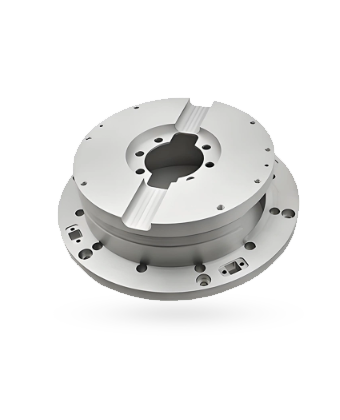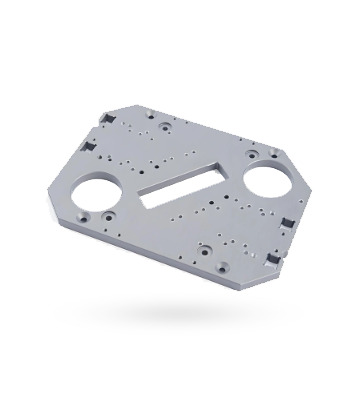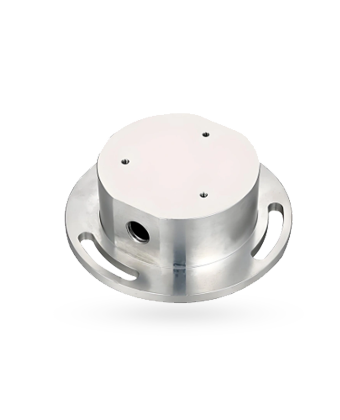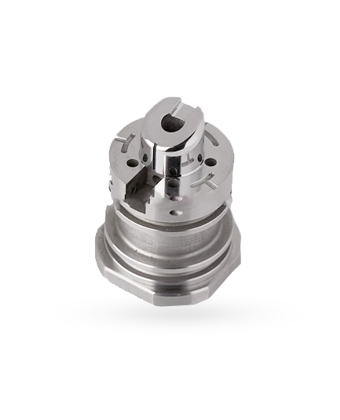Sheet Metal Fabrication

SOMI Capability
SOMI Sheet Metal Fabrication Capability
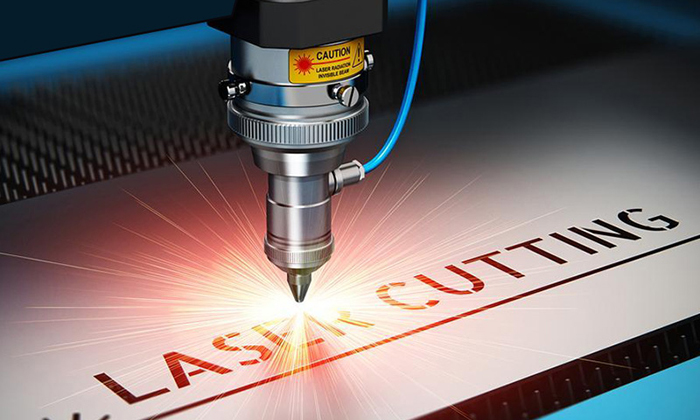
Laser Cutting
Laser cutting is a technology that uses a high-powered laser beam to cut materials such as metal, wood, plastic, and more with precision and accuracy.
High precision, Fast processing speed.
Diverse selection of materials and material thickness.
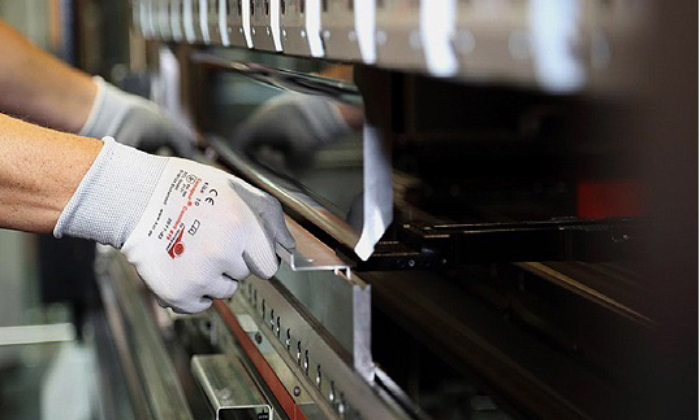
Metal Bending
Metal bending is a process that involves deforming metal sheets or bars to form desired shapes and angles.
High precision and accuracy.
High flexibility in curved shape.
Enhanced metal component strength and durability.
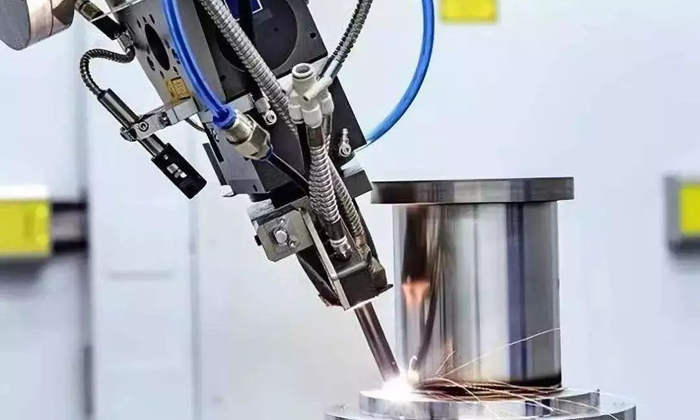
Metal Welding
Metal welding is a process that involves joining metal pieces together by heating them to their melting point and then allowing them to cool, forming a strong and durable bond. This technique is essential for creating complex structures and components in various industries.
Versatility in Joining Techniques.
Enhanced Structural Integrity and Durability.
Sheet Metal Fabrication
Show Custom Parts Machined by SOMI
Sheet Metal Fabrication
Sheet Metal Fabrication Materials
In sheet metal fabrication, selecting the right material is crucial for ensuring the performance, durability, and cost-effectiveness of the final product. The following are some common materials used in sheet metal fabrication along with their characteristics, to help you make the best choice for your project. Metals Suitable for Sheet Metal Processing
Metals Suitable for Sheet Metal Processing
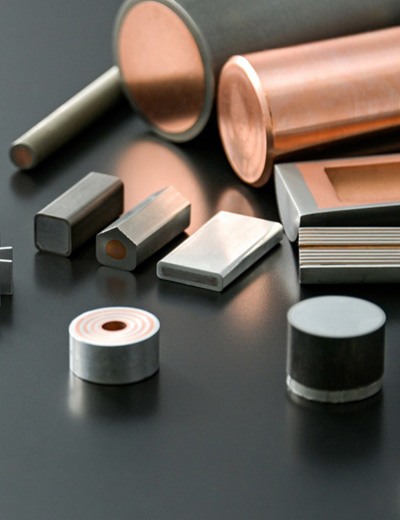

- Aluminum
Aluminum has a good strength-to-weight ratio, high thermal and electrical conductivity, low density and natural corrosion resistance. It is a highly malleable metal, making it easy to machining, can be anodized.
Type:1050,1060,2011,2024,5052,5051, 6061, 6063, 7075,7050

- Brass
Aluminum has a good strength-to-weight ratio, high thermal and electrical conductivity, low density and natural corrosion resistance. It is a highly malleable metal, making it easy to machining, can be anodized.
Type:1050,1060,2011,2024,5052,5051, 6061, 6063, 7075,7050

- Stainless steel
Aluminum has a good strength-to-weight ratio, high thermal and electrical conductivity, low density and natural corrosion resistance. It is a highly malleable metal, making it easy to machining, can be anodized.
Type:1050,1060,2011,2024,5052,5051, 6061, 6063, 7075,7050

- Copper
Aluminum has a good strength-to-weight ratio, high thermal and electrical conductivity, low density and natural corrosion resistance. It is a highly malleable metal, making it easy to machining, can be anodized.
Type:1050,1060,2011,2024,5052,5051, 6061, 6063, 7075,7050

- Mild Steel
Aluminum has a good strength-to-weight ratio, high thermal and electrical conductivity, low density and natural corrosion resistance. It is a highly malleable metal, making it easy to machining, can be anodized.
Type:1050,1060,2011,2024,5052,5051, 6061, 6063, 7075,7050

- Beryllium bronze
Aluminum has a good strength-to-weight ratio, high thermal and electrical conductivity, low density and natural corrosion resistance. It is a highly malleable metal, making it easy to machining, can be anodized.
Type:1050,1060,2011,2024,5052,5051, 6061, 6063, 7075,7050

- Alloy steel
Aluminum has a good strength-to-weight ratio, high thermal and electrical conductivity, low density and natural corrosion resistance. It is a highly malleable metal, making it easy to machining, can be anodized.
Type:1050,1060,2011,2024,5052,5051, 6061, 6063, 7075,7050

- Titanium
Aluminum has a good strength-to-weight ratio, high thermal and electrical conductivity, low density and natural corrosion resistance. It is a highly malleable metal, making it easy to machining, can be anodized.
Type:1050,1060,2011,2024,5052,5051, 6061, 6063, 7075,7050

- Tool steel
Aluminum has a good strength-to-weight ratio, high thermal and electrical conductivity, low density and natural corrosion resistance. It is a highly malleable metal, making it easy to machining, can be anodized.
Type:1050,1060,2011,2024,5052,5051, 6061, 6063, 7075,7050
Sheet Metal Fabrication
Sheet Metal Fabrication Surface Finishes
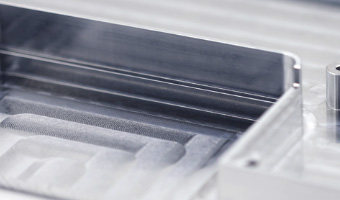
As-machined
The standard finish of our parts, the "machined" finish, has a surface roughness of 3.2 μm (126 μin), which removes sharp edges and cleanly removes burrs from the part.
Machining Texture:There are slight scratches on the visible surface.
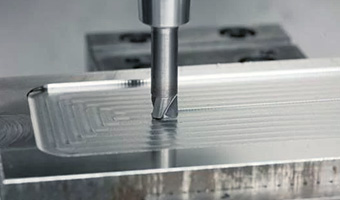
Smooth machining
A finishing CNC machining operation can be applied to the part to reduce its surface roughness. The standard smoothing surface roughness is Ra 1.6 μm (64 μin). Light surface scratches are visible.
Machining Texture:Visible, light surface scratches.
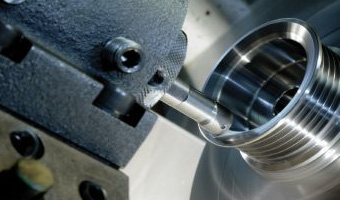
Fine machining
Refers to the process of precision treatment of raw materials or semi-finished products. The standard smoothing surface roughness is Ra 0.8 μm (32 μin).
Machining Texture:Slightly visible.
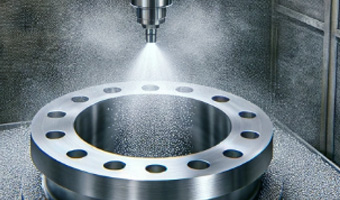
Bead blasting
Bead blasting refers to the use of round spherical media that, when impacted against the surface of a part, will leave a more uniform finish caused by the sphere “dimpling” the surface.
Machining Texture:Frosted grain.
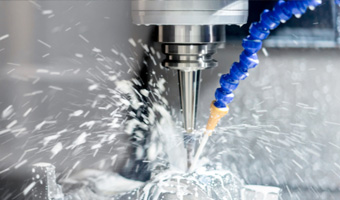
Brushing
Brushing is a surface treatment process that uses abrasive belts to draw traces on the surface of a material, usually for aesthetic purposes.
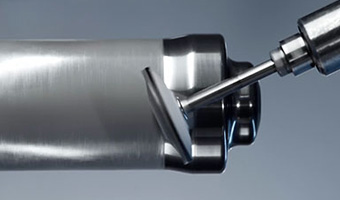
Polishing
From Ra 0.8 to Ra0.1, the polishing process uses abrasive materials to rub the surface of the part, making the surface of the part more shiny, depending on your requirements.
Machining Texture:Smooth, glossy finish
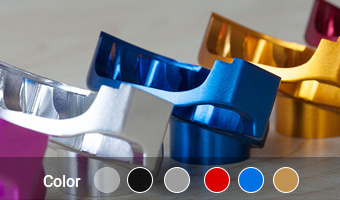
Anodizing
Aluminum and its alloy in the corresponding electrolyte and specific process conditions, due to the action of external current, the process of forming an oxide film on the aluminum product.
Machining Texture:Smooth, matte finish.
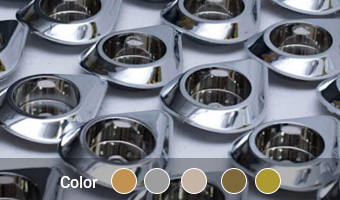
Electroplating
Electroplated coating preserves the surface of parts and resists rusts and other defects from causing decay by applying electric currents to reduce metal cations.
Machining Texture:Smooth, glossy finish.
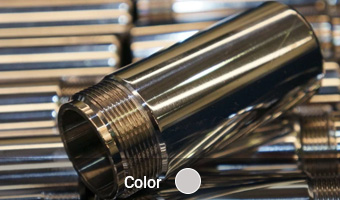
Electroless nickel plating
Electroless nickel plating is a process that deposits an alloy of nickel-phosphorus onto the surface of a metal. This process is chemical only, so does not involve the use of electricity.
Machining Texture:Reduced but visible.
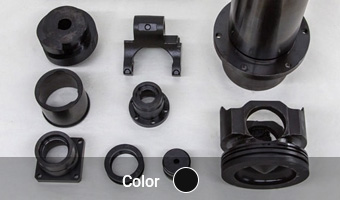
Black oxide
Black oxide is a conversion coating similar to Alodine that is used for steel and stainless steel. It is used mainly for appearance and for mild corrosion resistance..
Machining Texture:Smooth, matte.
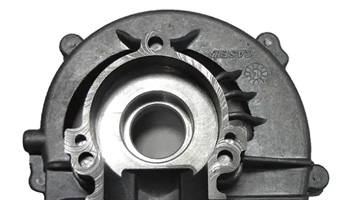
Powder coating
Using corona discharge, we make the powder coating adsorbed to the part, creating a more wear-resistant layer with a typical thickness ranging from 50 μm up to 150 μm.
Machining Texture:Glossy.
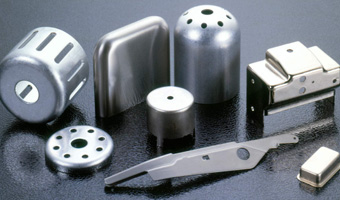
Chromate conversion coating
Chromate conversion coating is a type of conversion coating, used on aluminum as a corrosion inhibitor, as a primer for paint due to increased adherence or to preserve electrical conductivity.
Machining Texture:Visible.
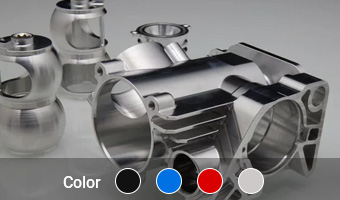
Electrophoresis
In the solution under the action of direct current electric field, the charged resin moves to the opposite electrode phenomenon. Strong corrosion resistance, can be on different colors.
Machining Texture:Visible.

As-machined
The standard finish of our parts, the "machined" finish, has a surface roughness of 3.2 μm (126 μin), which removes sharp edges and cleanly removes burrs from the part.
Machining Texture:There are slight scratches on the visible surface.

Smooth machining
A finishing CNC machining operation can be applied to the part to reduce its surface roughness. The standard smoothing surface roughness is Ra 1.6 μm (64 μin). Light surface scratches are visible.
Machining Texture:Visible, light surface scratches.

Fine machining
Refers to the process of precision treatment of raw materials or semi-finished products. The standard smoothing surface roughness is Ra 0.8 μm (32 μin).
Machining Texture:Slightly visible.

Bead blasting
Bead blasting refers to the use of round spherical media that, when impacted against the surface of a part, will leave a more uniform finish caused by the sphere “dimpling” the surface.
Machining Texture:Frosted grain.

Brushing
Brushing is a surface treatment process that uses abrasive belts to draw traces on the surface of a material, usually for aesthetic purposes.

Polishing
From Ra 0.8 to Ra0.1, the polishing process uses abrasive materials to rub the surface of the part, making the surface of the part more shiny, depending on your requirements.
Machining Texture:Smooth, glossy finish

Anodizing
Aluminum and its alloy in the corresponding electrolyte and specific process conditions, due to the action of external current, the process of forming an oxide film on the aluminum product.
Machining Texture:Smooth, matte finish.

Electroplating
Electroplated coating preserves the surface of parts and resists rusts and other defects from causing decay by applying electric currents to reduce metal cations.
Machining Texture:Smooth, glossy finish.

Electroless nickel plating
Electroless nickel plating is a process that deposits an alloy of nickel-phosphorus onto the surface of a metal. This process is chemical only, so does not involve the use of electricity.
Machining Texture:Reduced but visible.

Black oxide
Black oxide is a conversion coating similar to Alodine that is used for steel and stainless steel. It is used mainly for appearance and for mild corrosion resistance..
Machining Texture:Smooth, matte.

Powder coating
Using corona discharge, we make the powder coating adsorbed to the part, creating a more wear-resistant layer with a typical thickness ranging from 50 μm up to 150 μm.
Machining Texture:Glossy.

Chromate conversion coating
Chromate conversion coating is a type of conversion coating, used on aluminum as a corrosion inhibitor, as a primer for paint due to increased adherence or to preserve electrical conductivity.
Machining Texture:Visible.

Electrophoresis
In the solution under the action of direct current electric field, the charged resin moves to the opposite electrode phenomenon. Strong corrosion resistance, can be on different colors.
Machining Texture:Visible.
Industry
Application Areas of Sheet Metal Fabrication
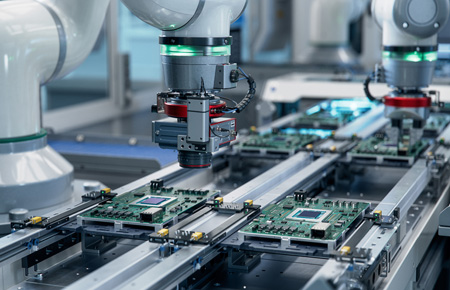
Consumer Electronics
Our manufactured electronic components consistently meet the tight tolerances required in this ever-evolving industry.
Learn More
Aerospace & Aviation
Our manufactured electronic components consistently meet the tight tolerances required in this ever-evolving industry.
Learn More
Automotive
Our manufactured electronic components consistently meet the tight tolerances required in this ever-evolving industry.
Learn More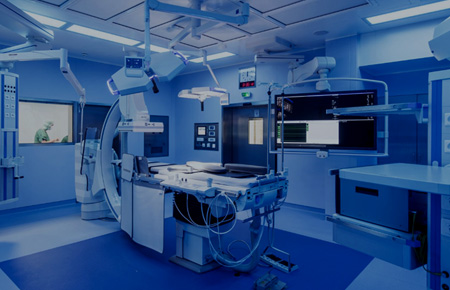
Medical
Our manufactured electronic components consistently meet the tight tolerances required in this ever-evolving industry.
Learn More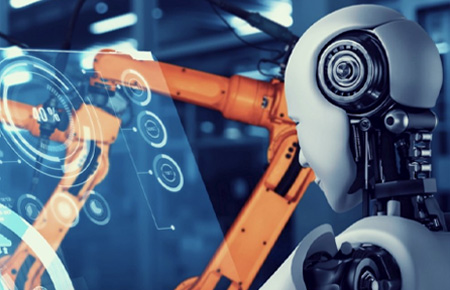
Robotics & Automation
Our manufactured electronic components consistently meet the tight tolerances required in this ever-evolving industry.
Learn More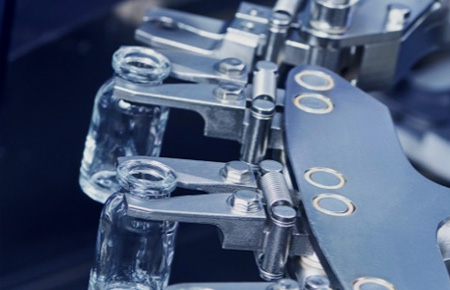
Industrial Machinery Parts
Our manufactured electronic components consistently meet the tight tolerances required in this ever-evolving industry.
Learn MoreTest Inspection
Quality Assurance at the Heart of Our Operations
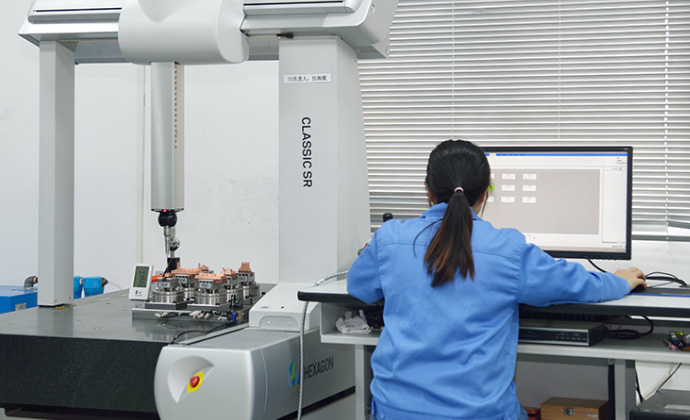
Get a Quote
Contact us Today for Your Sheet Metal Fabrication Requirements
Ready to elevate your manufacturing with the precision and quality of SOMI's Sheet Metal Fabrication Services? Contact us today to discuss your project and discover how we can help you achieve unparalleled results. With SOMI, you're not just choosing a service provider, you're choosing a partner dedicated to your success.
We hope to discuss potential cooperation opportunities with you and ask you to provide quotation information for your project. Looking forward to your reply and working with you to promote the success of your project!
- *Name
- *Tel
- *Title
- *Content
FAQ
Frequently Asked Questions
- Q: How do you choose the right sheet metal fabrication service provider?A: When choosing the right sheet metal fabrication service provider, consider the following factors: processing capability (whether they have the equipment and technology to handle complex projects), quality control (whether they have a strict quality management system), delivery time (whether they can deliver on time), price competitiveness (whether the cost is competitive while ensuring quality and delivery), and after-sales service (whether they provide comprehensive after-sales support and technical services). SOMI Custom Parts, with its robust manufacturing network and professional technical team, can quickly respond to customer needs and provide high-quality sheet metal fabrication services.
- Q: What are the common surface treatment processes in sheet metal fabrication?A: Surface treatment processes after sheet metal fabrication can significantly enhance the appearance, corrosion resistance, and other physical properties of the product. Common surface treatment processes include painting (powder coating and liquid painting), electroplating (such as galvanizing, chrome plating, and nickel plating), oxidation treatment (such as anodizing and chemical oxidation), sandblasting, brushing, polishing, shot peening, oiling, and film application. SOMI Custom Parts has advanced surface treatment equipment and techniques to ensure high-quality completion of every project.
- Q: What are the common materials used in sheet metal fabrication?A: Common materials used in sheet metal fabrication include stainless steel, aluminum alloys, carbon steel, galvanized steel, copper and copper alloys, magnesium alloys, and titanium alloys. Each material has unique properties and applications. For example, stainless steel offers excellent corrosion resistance and strength, making it suitable for food processing equipment and medical devices; aluminum alloys are lightweight and have good electrical conductivity, making them widely used in aerospace and electronic products. SOMI Custom Parts provides a comprehensive range of material options to meet all customer needs.







